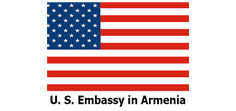On May 31, 2018, in an interview with reporters following the RPA Executive Body Meeting, member of the RPA Executive body Davit Harutyunyan announced that RPA is ready for discussions on both amendments to Electoral Code and snap elections. In his statement, however, Harutyunyan underlined that they welcome both the creation of a single fingerprint identification online database and the introduction of mobile voter lists. Whereas, it should be noted that the implementation of the first proposal requires a lot of time, while the second one is simply impracticable.
Recently, various discussions on the reform of the Electoral Code have been held with the representatives of almost all parliamentary (except for RPA) and extra-parliamentary parties, interested NGOs, national minorities, as well as with experts from the Council of Europe, the UN, the RA Police, and the RA National Security Service. During the discussions, the representatives introduced proposal, which will essentially lead to fair and transparent elections; at the same time, the feasibility of different discussions has been identified.
During the expert discussions, the participants also touched upon the ideas welcomed by David Harutyunyan.
Single Fingerprint Identification Online Database
Creating a fingerprint identification system for a single fingerprint online database of voters is costly and time consuming.
It is practically impossible to do in 2018. In particular,
1.The online database suggests that fingerprint readers of all polling stations should be provided with Internet, and the failure of the Internet connection in one polling station will lead to the disruption of the electoral process. David Harutyunyan himself was the first to voice this issue during the 4 + 4 + 4 format negotiations in 2016.
2.The online database should compare the voter’s fingerprint to the fingerprints of all the voters that voted before, which means that the identification of one voter may last for about 20 minutes (especially for the voters that come at the end of the day).
3.The online database is also ineffective in the sense that every voter has 10 fingers and can vote 10 times in case of a criminal agreement.
4.If instead of comparing the fingerprint of the voter with those of the previous voters, the database traces the fingerprint of the voter with the fingerprint of that person that already exists in the database, then it will be necessary to collect all the voters’ fingerprints before the elections. At the moment, only about 970,000 people have been fingerprinted while receiving identification cards (only a small part of them gave all the 10 fingerprints, and about 700,000 gave the fingerprints of only index fingers).
5.Currently there is a deficit of ID cards in the police, while the delivery of new cards takes 4 months, and 62 passport departments of the republic can give no more than 50 thousand ID cards per month. This means that at least 20 months is required to give out ID cards to at least 1.6 million voters and have a database of at least 2 fingerprints. Even in an emergency mode, this can not be completed in 2018.
6.Fingerprint readers could not read the fingerprints of the voters in 4-5% of cases, which may be due to the sensitivity of the device, person’s specialty, weather and other conditions (David Harutyunyan was again the first to mention this issue during the “4 + 4 + 4” format meeting).
Introduction of “Mobile” voter lists
This is the case with the Electronic Border Management Information System (BMIS) used by the National Security Service (NSS) Border Guard, but it is impossible accurately trace this system with the voter lists because of the following objective reasons:
1.The BMIS system has been operating since 2008, therefore no information is available in the system about those who emigrated from Armenia before 2008 and have not returned since then.
2.The BMIS does not contain data on whether the person is currently in Armenia or not, but only data about person crossing the border points. Moreover, in 2008, the system operated only at Zvartnots airport, later on it was introduced at land checkpoints. Therefore, it is possible that the citizen has left the territory of Armenia by air but returned by land; as a result, the system may show that the citizen is abroad, but he/she may actually be in the country.
3.For example, a citizen has left the Armenian border with the Armenian passport but returns with a foreign passport. In these cases, the identification of a person is difficult because there is no patronymic in the foreign passports. Meanwhile, in such cases when a citizen changes his / her surname abroad (for example, when marrying) or the name, the identification of a person becomes impossible. The system therefore shows that all these individuals are abroad, but in fact, they are in Armenia.
In spite of the abovementioned shortcomings, the NSS and the police have discussed other types of disclosure means (with the involvement of the BMIS) that reveal voting fraud, for example voting instead of a person. These means will prevent other offenses too. Moreover, during the discussions there were also other effective measures considered that would guarantee the elimination of votes instead of other persons.
It should be noted that personally Davit Harutyunyan, who has been the Minister of Justice for many years, should be well aware of all the above mentioned shortcomings. This, in turn, raises doubts about the sincerity of the Republicans’ statement.

 FACTOMETER
FACTOMETER










